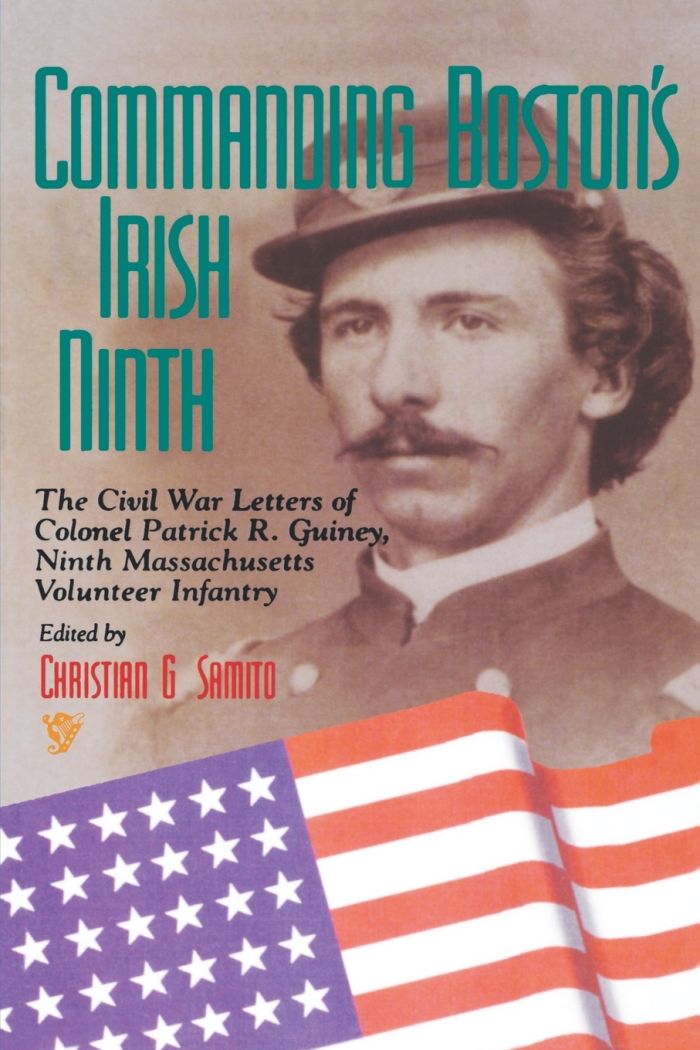Commanding Boston's Irish Ninth
The Civil War Letters of Colonel Patrick R. Guiney Ninth Massachusetts Volunteer Infantry.

This book can be opened with

Christian Samito writes in his introduction: "In reading Guiney’s words, one can have a fuller appreciation of what motivated civilians to volunteer to fight a war and of the privations they suffered in service to their country."
These are the collected Civil War letters of Patrick Robert Guiney, an Irish immigrant from Country Tipperary who relocated to Boston, Massachusetts. When the Civil War broke out, Guiney volunteered to defend the Union and, quickly rose from First Lieutenant to Colonel, to command the ninth Massachusetts regiment. A fervent supporter of Lincoln and passionately opposed to slavery, Guiney felt that, in his service to his new country, he was doing his part to gain freedom for the slaves. Being politically outspoken, Guiney was often criticized for his views by other Irish-Americans. His letters reveal not only the experiences and thoughts of an Irish Catholic soldier, but also the hidden tensions within his immigrant community. His views and observations not only illuminate his personal independence of thought, but also the political landscape which he tried to improve.
His letters reveal the experiences and thoughts of an Irish-Catholic soldier and should be of great interest to historians of immigration as well as the Civil War.——The Historical Journal of Massachusetts
Samito has done an excellent job in editing the wartime letters of Patrick Guiney to his wife, Jennie. These letters reveal the very soul of a very special Irish immigrant.——Irish Edition
The detailed and authoritative footnotes not only clarify incomplete references within the correspondence, but also place individual events within a larger Civil War context. Samito's lengthy prologue traces Guiney's life prior to military service, and the epilogue provides and equally valuable record of his life in post-war Boston.——Choice
Among the numerous Civil War letters that appear in print, these are distinguished for the author's forthright discussion of political and military affairs.——Library Journal
Guiney's letters are important, as they provide more information on a subject lacking in documentation, the story of a community known collectively as 'The Fighting Irish'.——North & South
Editor Samitodoes a superb job in providing historical summaries before each collection of letters. . . .——The Civil War News

